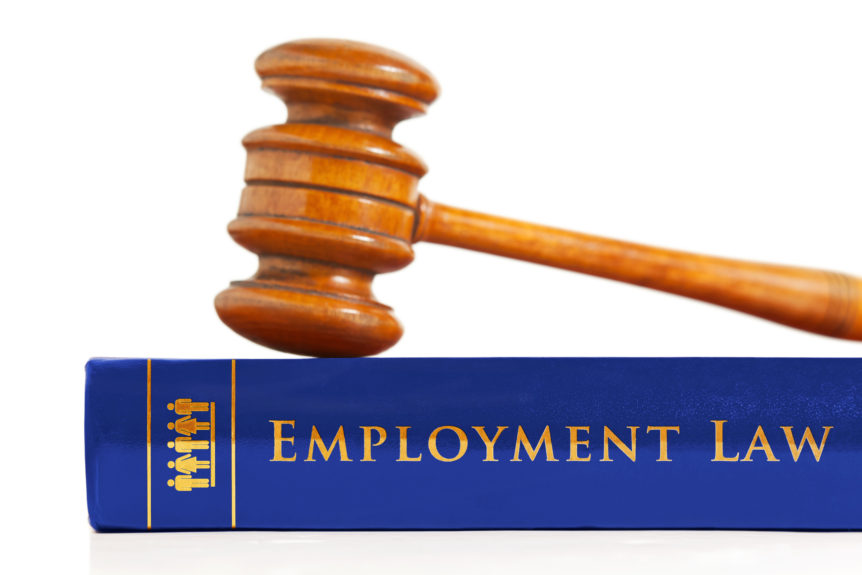By Erica Townes, McNees In a recent change of position, the Department of Labor (“DOL”) has endorsed a new standard for determining when an unpaid intern is entitled to compensation as an employee under the Fair Labor Standards Act (“FLSA”). We previously reported on an earlier DOL effort to tighten up the restrictions on the use of unpaid interns. It looks like the DOL has decided to change course. Read more on the McNees website >>>
Construction Employers Must Provide Paid Family Leave in New York
Effective January 1, 2018, employees of construction employers (supplies, architects, contractors, and others) working in New York State may be eligible for paid family leave. The NY Paid Family Leave Law (“PFLL”) is both broader than and more narrow than the federal Family and Medical Leave Act. The PFLL applies to all employees employed by private employers in the construction industry and working in New York State, even if those employers are located outside the State of New York or the employee is working from home (for example, sales employees, estimators, etc.). Tell me more >>>
Drug and Alcohol Policy – Now What?
Does your company have a written drug and alcohol testing process to go along with its drug and alcohol policy? A drug and alcohol policy and process are both important; the policy is generally located in a company’s employee handbook which has been communicated to all employees but the process is a guide, tools and training for management which is relayed to them. Many companies have a drug and alcohol policy which begins with their philosophy and tolerance for drugs and alcohol and includes the types of drug and alcohol testing: pre-employment, random and post-accident (Department of Labor regulated employees), reasonable suspicion, return-to-duty, follow-up and refusal to test, etc. However, some companies lack a detailed testing process for their management which …
Why the Average Retirement Age is Rising
Social Security, pension type, and education are factors that have contributed to the rise in the retirement age since the mid-1980s, writes Alicia H. Munnell, director of Boston College Center for Retirement Research, in this article on MarketWatch. Other factors that have also spurred an increase in retirement age are improved health and longevity, jobs becoming less physically demanding, writes Munnell. “While all these factors help explain the gains since the mid-1980s, I was concerned that they had played themselves out. At least for men, though, the increase in the average retirement age from 63.9 in 2013 to 64.6 in 2015 is encouraging.” Tell me more >>>
Employee Engagement Tops the List of 2017 HR Trends
Written and compiled by Catherine Conlan, Senior Writer at Reputation Capital Media Services and shared here by Sherri Hebda, MBA, SPHR, SHRM-SCP After a big hiring year in 2016, many HR managers say they are turning their attention to employee retention. The reason: all that recruiting work is wasted if the employees don’t stick around. “Employee engagement will play a big role in the HR realm in 2017,” says Brad Stultz, human resources director at Totally Promotional, which custom prints promotional products in Coldwater, Ohio. “With record low unemployment rates continuing across the country, employees find themselves in a position to change career paths on a whim.” To that end, here are the 2017 HR trends that HR managers envision: …
You Must Retain Some Payroll Records for Decades
This article was published by J.J. Keller on September 6, 2017, in Prospera Spotlight. Paying employees and administering benefit plans generates numerous records, often raising questions about how long specific records need to be saved. Several laws apply, but the retention period differs with each law. Under some laws, the retention period could be decades. Wages paid Under the Fair Labor Standards Act (FLSA), you must retain payroll records for at least three years. Such records include hours worked, rates of pay, overtime pay, total earnings, and deductions from pay. Note that state laws may impose longer retention periods. For example, New York requires employers to keep payroll records for six years. Taxes paid You must retain employee tax records for …
Five Ways to Stop Negative Office Gossip
This article is by Lisa Quast, consultant for marketing, strategic planning and HR/talent development and a former “Fortune 500” executive turned career coach and award-winning author. Shared by Sherri Hebda, MBA, SPHR, SHRM-SCP, HR Solutions Being a manager can be tough because it often includes stepping into situations that are outside your comfort zone, such as handling negative office gossip. Dealing directly and swiftly with the perpetrators, meeting with your staff and encouraging positive gossip (not the negative kind) can help turn things around. As a manager, it’s your job to ensure the department achieves all of its goals and objectives. This can be difficult to do if you’re stepping into a situation where workplace gossiping has been allowed to …
Do You Know Who Your Employees Are?
The recent DOL Administrator’s Interpretation on “Joint Employment”, shared by Mike Scheerer, Senior HR Consultant, HR Solutions. Not to be outdone by the National Labor Relations Board (“NLRB”) and its recent Browning-Ferris decision where it significantly expanded the definition of “joint employment” under the National Labor Relations Act, the United States Department of Labor (DOL) Wage and Hour Division released an Administrator’s Interpretation this week similarly putting employers on notice that it’s view of joint employment under the Fair Labor Standards Act (FLSA), as well as the Migrant and Seasonal Agricultural Worker Protection Act (MSPA), is going to significantly expand. The joint employment analysis will be applied for purposes of determining whether one or more entities are liable for compliance …
Important information regarding cold stress
Cold stress is a condition that can affect workers who perform jobs in cold environments.
Important information regarding heat stress
When workers are required to perform their duties in warm temperatures, they are at risk for heat stress.










